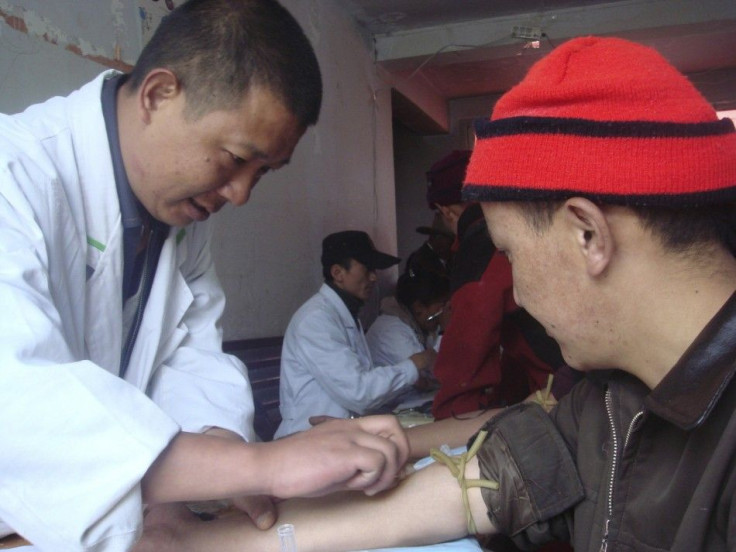Blackmarket For Blood Supply Thrives In China

While many non-essential surgeries in China has been postponed because of blood supply shortage, for the “right price,” unofficial agents of blood banks could arrange and provide the family of patients in need of the red liquid a life-saving certificate that grants them access to supply.
One way to access the blood bank is to present proof that someone in the family has donated blood on the patient’s behalf to the state blood bank. This leaves people with no relatives who could donate at the mercy of the agents of the state blood banks.
Capitalotc.com explains the blood supply crisis facing China to these unofficial agents selling blood to hospitals and blood banks from blood donated by farmers in response to a push from local officials. As a result of greed in which donations were accepted without checking the source, thousands of blood recipients were infected with HIV.
To worsen matters, in 2011, a female officials of the Red Cross Society of China posted images on Facebook, showing a lavish lifestyle. The scandal further aggravated China’s blood supply crisis due to the image problem the official presented.
The unofficial agents, also called “blood heads,” recruit blood donors and help them sell their certificates of donation where the going rate is $160 for a 100 cc bag of blood. Patients alleged that these blood heads bribe cops and health workers to ensure their business continue.
Commercial sales of blood is prohibited in China since 1998, but voluntary donation is encouraged. Residents are allowed to donate blood twice a year.
For a nation with more than 1 billion people, blood donation is very low in China, with only less than 1 percent donating blood in 2011 or 4,164 tonnes, a 5 percent hike actually from 2010 level of donation.
Some patients have accepted the blackmarket as part of their need to survive, such as retired Shanghai government employee Hong, who suffers from myelodysplatic syndrome. Hong told Reuters, “Buying blood solves our problems.”
To contact the writer, email: v.hernandez@ibtimes.com.au





















